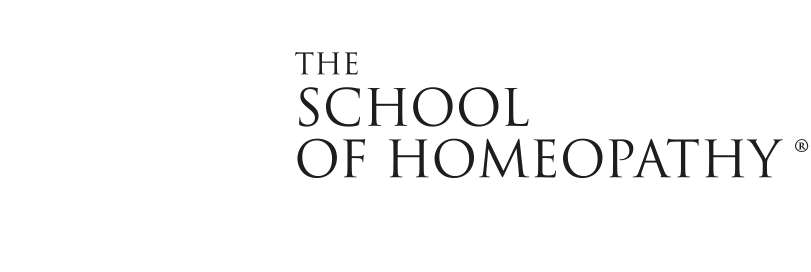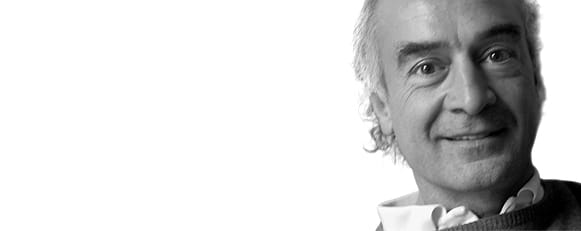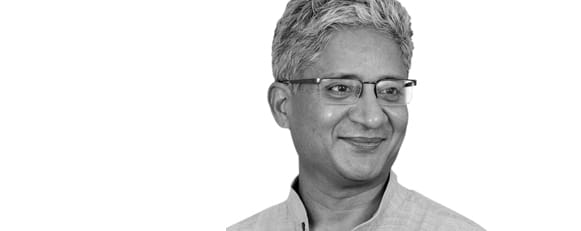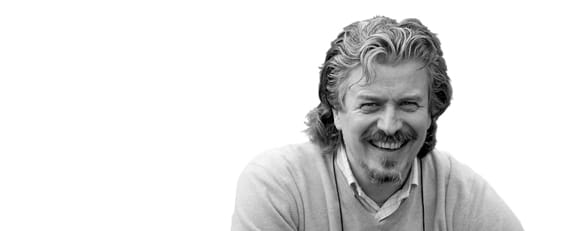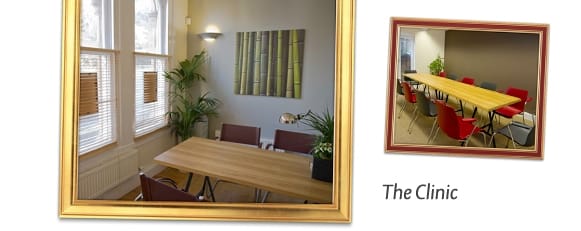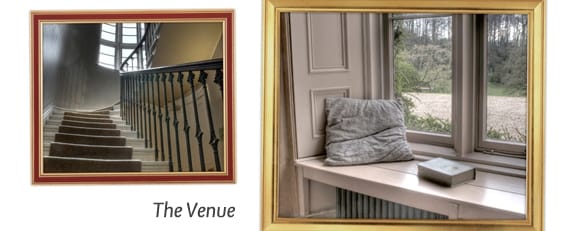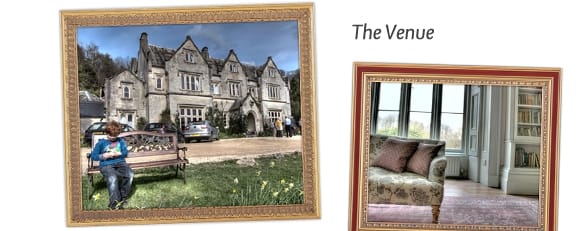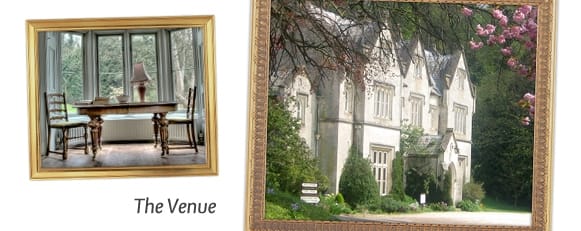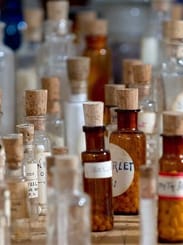
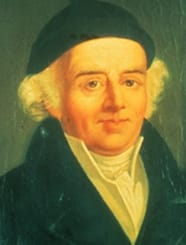
Aphorism 291-294
§ 291 Fifth Edition
Even those organs which have lost their peculiar sense, e.g., a tongue and palate that have lost the faculty of tasting, or a nose that has lost the faculty of smelling, communicate the power of the medicine that acts first on them alone not less perfectly to all the other organs of the body.
§ 291 Sixth Edition
Baths of pure water prove themselves partly palliative, partly as homoeopathic serviceable aids in restoring health in acute diseases as well as in convalescence of cured chronic patients with proper consideration of the conditions of the convalescent and the temperature of the bath, its duration and repetition. But even if well applied, they may bring only physically beneficial changes in the sick body, in themselves they are no true medicine. The lukewarm baths at 25 to 27? serve to arouse the slumbering sensibility of fibre in the apparent dead (frozen, drowned, suffocated) which benumbed the sensation of the nerves. Though only palliative, still they often prove themselves sufficiently active, especially when given in conjunction with coffee and rubbing with the hands. They may give homoeopathic aid in cases where the irritability is very unevenly distributed and accumulated too unevenly in some organs as is the case in certain hysteric spasms and infantile convulsions. In the same way, cold baths 10 to 6? in persons cured medically of chronic diseases and with deficiency of vital heat, act as an homoeopathic aid. By instantaneous and later with repeated immersions they act as a palliative restorative of the tone of the exhausted fibre. For this purpose, such baths are to be used for more than momentary duration, rather for minutes and of gradually lowered temperature, they are a palliative, which, since it acts only physically has no connection with the disadvantage of a reverse action to be feared afterwards, as takes place with dynamic medicinal palliatives.
§ 292 Fifth Edition
Even the external surface of the body, covered as it is with skin and epidermis, is not insusceptible of the powers of medicines, especially those in a liquid form, but the most sensitive parts are also the most susceptible.1
1 Rubbing-in appears to favour the action of the medicines only in this way, that the friction makes the skin more sensitive, and the living fibres thereby more capable of feeling, as it were, the medicinal power and of communicating to the whole organism this health-affecting sensation. The previous employment of friction to the inside of the thigh makes the mere laying on the mercurial ointment afterwards quite as powerfully medicinal as if the ointment itself had been rubbed upon that part, a process which is termed rubbing-in, but it is very doubtful whether the mental itself can penetrate in substance into the interior of the body, or be taken up by the absorbent vessels by means of this so-called rubbing-in. Homoeopathy, however, hardly ever requires for its cures the rubbing-in of any medication, nor does it need any mercurial ointment.
§ 293 Fifth Edition
I find it necessary to allude here to animal magnetism, as it is termed, or rather mesmerism (as it should be called, out of gratitude to Mesmer, its first founder), which differs so much in its nature from all other therapeutic agents. This curative power, often so stupidly denied, which streams upon a patient by the contact of a well-intentioned person powerfully exerting his will, either acts homoeopathically, by the production of symptoms similar to those of the diseased state to be cured; and for this purpose a single pass made, without much exertion of the will, with the palms of the hands not too slowly from the top of the head downwards over the body to the tips of the toes,1 is serviceable in, for instance, uterine haemorrhages, even in the last stage when death seems approaching; or it is useful by distributing the vital force uniformly throughout the organism, when it is in abnormal excess in one part and deficient in other parts, for example, in rush of blood to the head and sleepless, anxious restlessness of weakly persons, etc., by means of a similar, single, but somewhat stronger pass; or for the immediate communication and restoration of the vital force to some one weakened part or to the whole organism, – an object that cannot be attained so certainly and with so little interference with the other medicinal treatment by any other agent besides mesmerism. If it is wished to supply a particular part with the vital force, this is effected by concentrating a very powerful and well-intentioned will for the purpose, and placing the hands or tips of the fingers on the chronically weakened parts, whither an internal chronic dyscrasia has transferred its important local symptom, as, for example, in the case of old ulcers, amaurosis, paralysis of certain limbs, etc.2 Many rapid apparent cures performed in all ages, by mesmerizers endowed with great natural power, belong to this class. The effect of communicated human power upon the whole human organism was most brilliantly shown, in the resuscitation of persons who had lain some time apparently dead, by the most powerful sympathetic will of a man in full vigor of vital force,3 and of this kind of resurrection history records many undeniable examples.
1 The smallest homoeopathic dose, which however, often effects wonders when used on proper occasions. Imperfect homoeopathists, who think themselves monstrously clever, not infrequently deluge their patients in difficult diseases with doses of different medicines, given rapidly one after the other, which, although they may have been homoeopathically selected and given in highly potentized attenuation, bring the patients into such an over-excited state that life and death are struggling for the mastery, and the least additional quantity of medicine would infallibly kill them. In such cases a mere gentle mesmeric pass and the frequent application, for a short time of the hand of a well-intentioned person to the part that is particularly affected, produce the harmonious uniform distribution of the vital force throughout the organism, and therewith rest, sleep and recovery.
2 Although by this restoration of the vital force, which ought to be repeated from time to time, no permanent cure can be effected in cases where, as has been taught above, a general internal dyscrasia lies at the root of the old local affection, as it always does, yet this positive strengthening and immediate saturation with the vital force (which no more belongs to the category of palliatives than does eating and drinking when hunger and thirst are present) is no mean auxiliary to the actual treatment of the whole disease by homoeopathic medicines.
3 Especially of one of those persons, of whom there are not many who, along with great kindness of disposition and perfect bodily powers, possesses but a very moderate desire for sexual intercourse, which it would give him very little trouble to suppress, in whom, consequently, all the fine vital spirits that would otherwise be employed in the preparation of the semen, are ready to be communicated to others, by touching them and powerfully exerting the will. Some powerful mesmerisers, with whom I have become acquainted, has all this peculiar character.
§ 294 Fifth Edition*
All the above-mentioned methods of practicing mesmerism depend upon an influx of more or less vital force into the patient, and hence are termed positive mesmerism.1 An opposite mode of employing mesmerism, however, as it produces just the contrary effect, deserves to be termed negative mesmerism. To this belong the passes which are used to rouse from the somnambulic sleep, as also all the manual processes known by the names of soothing and ventilating. This discharge by means of negative mesmerism of the vital force accumulated to excess in individual parts of the system of undebiliated persons is most surely and simply performed by making a very rapid motion of the flat extended hand, held parallel to, and about an inch distant from the body, from the top of the head to the tips of the toes.2 The more rapidly this pass is made, so much the more effectually will the discharge be effected. Thus, for instance, in the case where a previously healthy woman,3 from the sudden suppression of her catamenia by a violent mental shock, lies to all appearance dead, the vital force which is probably accumulated in the precordial region, will by such a rapid negative pass, be discharged and its equilibrium throughout the whole organism restored, so that the resuscitation generally follows immediately.4 In like manner, a gentle, less rapid, negative pass diminishes the excessive restlessness and sleeplessness accompanied with anxiety sometimes produced in very irritable persons by a too powerful positive pass, etc.
* This Section corresponds to § 289 of the Sixth Edition.
1 When I here speak of the decided and certain curative power of positive mesmerism, I most assuredly do not mean the abuse of it, where, by repeated passes of this kind, continued for half an hour or a whole hour at a time, and, even day after day, performed on weak, nervous patients, that monstrous revolution of the whole human system is effected which is termed somnambulism, wherein the human being is ravished from the world of sense and seems to belong more to the world of spirits – a highly unnatural and dangerous state, by means of which it has not infrequently been attempted to cure chronic diseases.
2 It is a well known rule that a person who is either to be positively or negatively mesmerised, should not wear silk on any part of the body.
3 Hence a negative pass, especially if it be very rapid, is extremely injurious to a delicate person affected with a chronic ailment and deficient in vital force.
4 A strong country lad, ten years of age, received in the morning, on account of slight indisposition, from a professed female mesmeriser, several very powerful passes with the points of both thumbs, from the pit of the stomach along the lower edge of the ribs, and he instantly grew pale, and fell into such a state of unconsciousness and immobility that no effort could arouse him, and he was almost given up for dead. I made his eldest brother give him a very rapid negative pass from the crown of the head over the body to the feet, and in one instant he recovered his consciousness and became lively and well.
I have now, after eighteen months of work, finished the sixth edition of my Organon, the most nearly perfect of all.
Samuel Hahnemann
